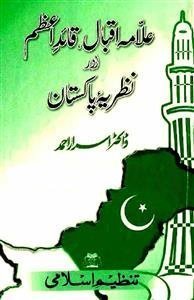
Unit I: Historical Perspective of Pakistan
This Pakistan Studies course provides a background on the Pakistan Movement and the political development after its inception. It will also cover the salient features of Pakistan 37 such as its land, economy, human development, and domestic, international, and current affairs. The course aims to introduce students to the history of the region comprising Pakistan, provide an overview of contending perspectives on the origins of the country, and examine its politics, society and culture. The course will discuss foundation of ideology of Pakistan, ideological clash between Muslims and other non-Muslims communities of subcontinent specially Hindus. History that reveals when the Muslims entered in the South Asia for trading them, with the trade, started preaching of Islam also and the rays of Islam began to spread over this sub-continent. The course will focus on Islamic ideology as the philosophy underlying the Two Nations theory. Pakistan is a state founded on ideological basis and not on the territorial grounds. The course will also provide the knowledge about social, economic and political variances between the two major communities at that time living in subcontinent. The concept of Islam, Iqbal and Jinnah parallel to western philosophy will be keenly focused i.e. the concept of state, nationalism, democracy and other social, economic and political approaches etc. The subject, furthermore, looks at some contemporary developmental issues facing the country. It will also provide past, present and futuristic view to students regarding the subject. The course, furthermore, looks at some contemporary developmental issues facing the country. It will define and realize duties to the students that what Pakistan need from us and how we can perform our abilities positively for our country.
Some objectives of this course are given below:
Teaching will be done through lecture method with a combination of tasks/projects and presentations.
Assessment and Examinations
Assessment will be done as per university/department policy
 ALLAMA IQBAL QAID-E-AAZAM AUR NAZARIYA-E-PAKISTAN
by
ALLAMA IQBAL QAID-E-AAZAM AUR NAZARIYA-E-PAKISTAN
by
 Tehreek e Azadi e Hind aur Musalman
by
Tehreek e Azadi e Hind aur Musalman
by
Theme: Jinnah's 14 points
Duration: 4:56
Language: English
For the facilitation of students, ISD provides latest computer systems in the library, connected with high internet connection, through which students may access digital resources of the library or my complete his/her assignment/presentation in the peaceful environment.

